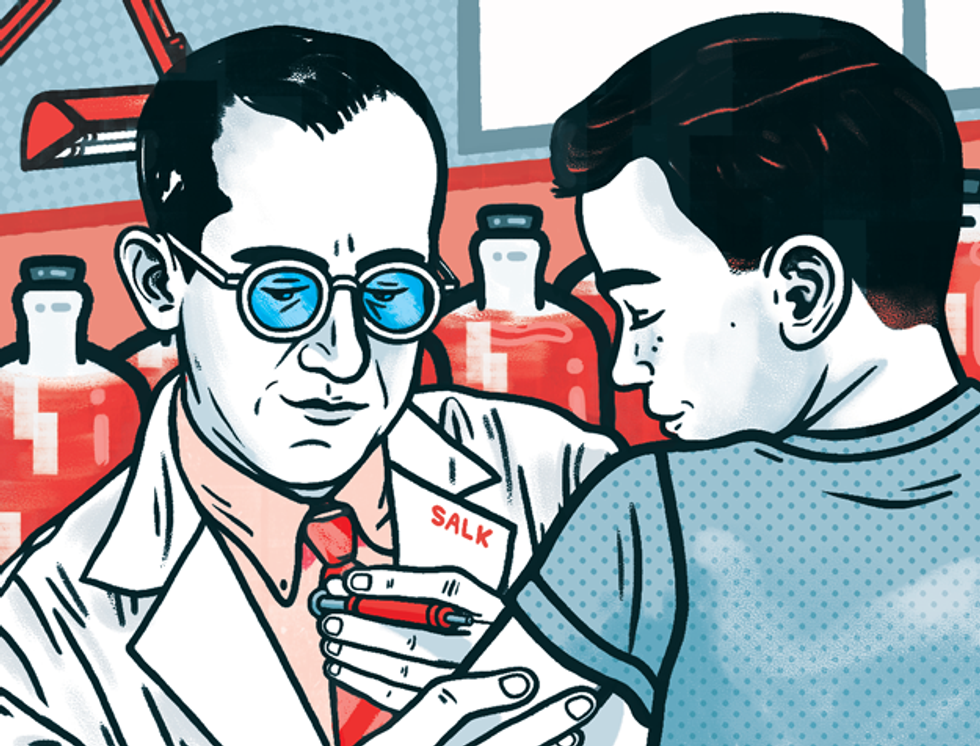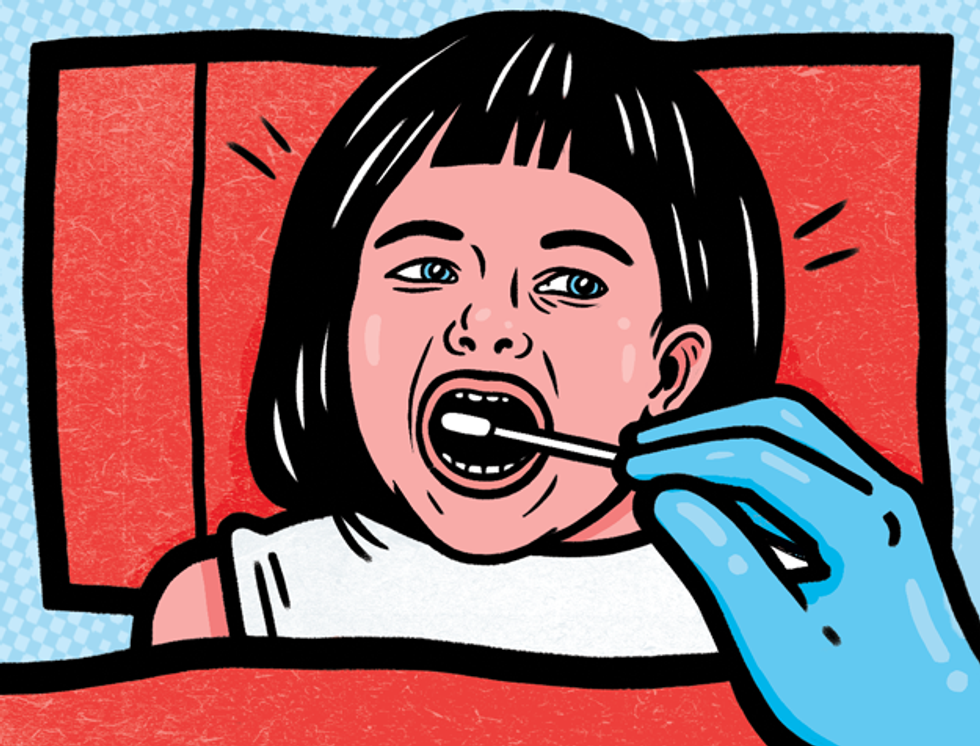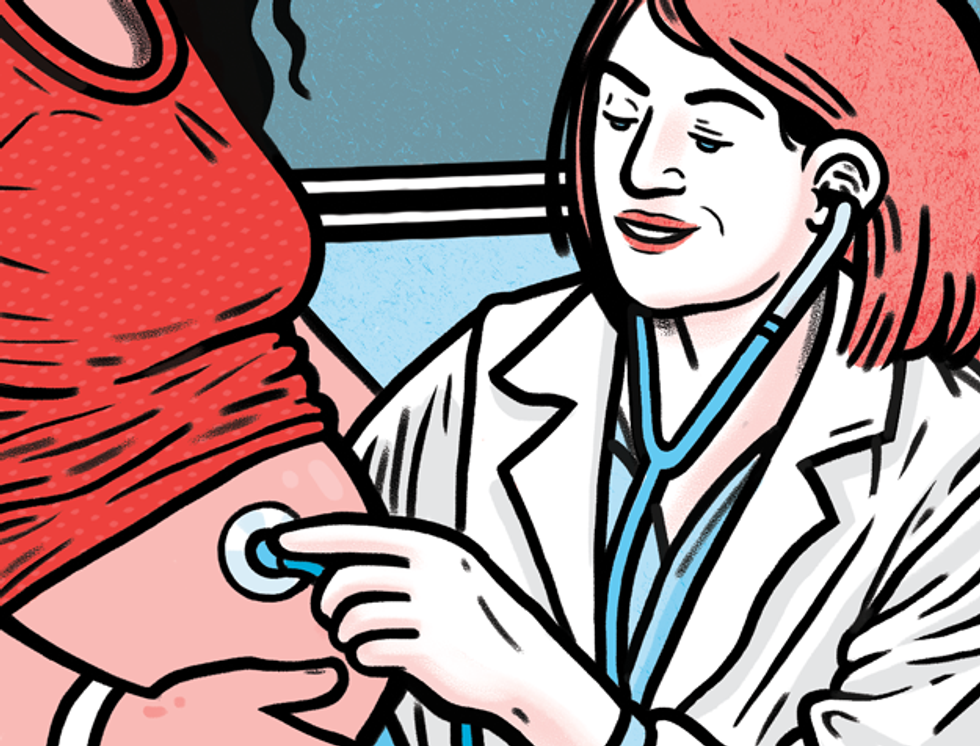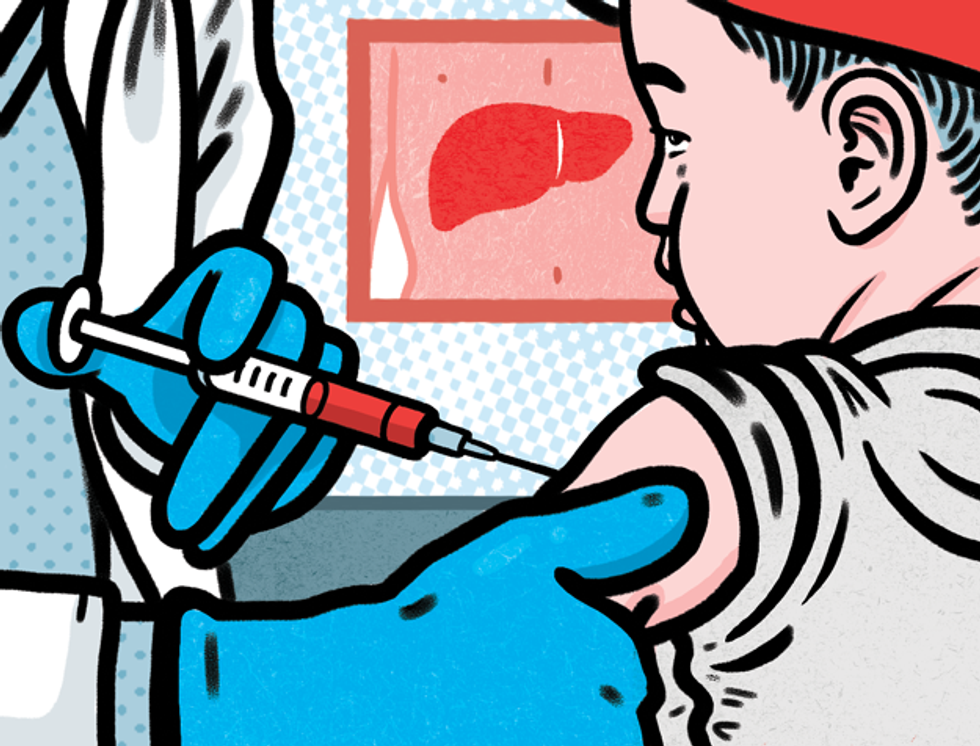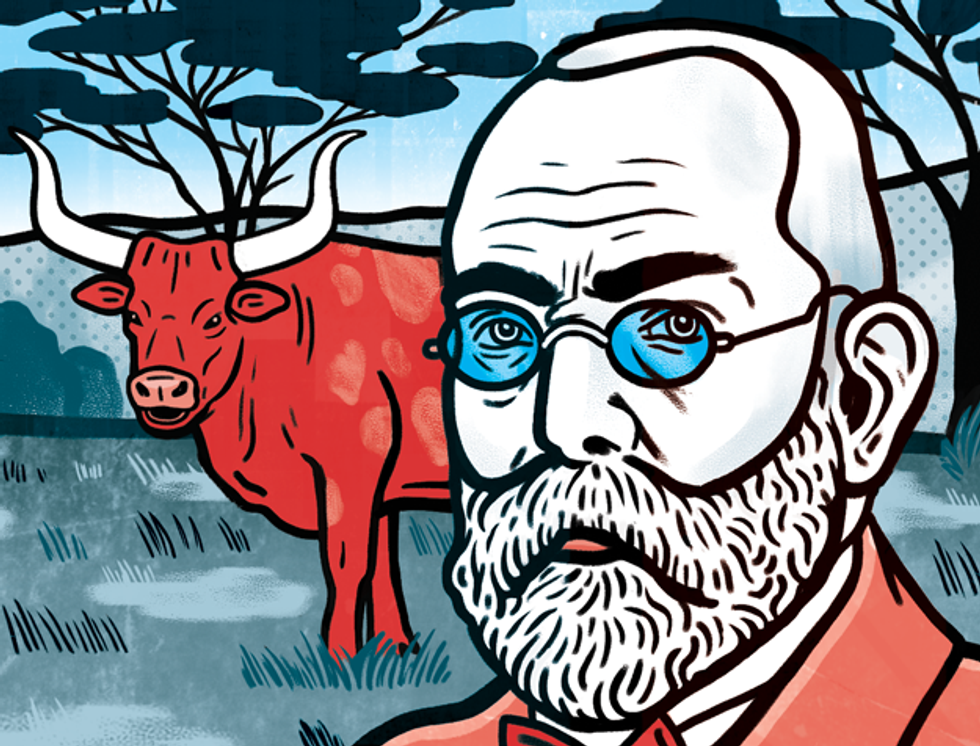With my set decision to become a High School English teacher, the rise of concerns with children and vaccines has struck my attention more than ever. The fact that anyone thinks vaccinating doesn't hep prevent or even extinguish a disease is just simply wrong. So, I've gathered up some facts with a little help from Buzzfeed and common knowledge to help y'all out.
Here are some diseases that are almost a thing of the past thanks to their vaccines:
1. Polio
Polio, a nervous system–attacking disease, has not occurred in the US since 1979 thanks to Jonas Salk’s groundbreaking discovery of the polio vaccine in 1952. By the late 1990s, 80% of the world’s children were being immunized against the polio virus. Nowadays, Pakistan and Afghanistan are the only remaining countries where polio remains endemic.
By 1952, Salk had refined a vaccine that he felt confident enough to use on some very special volunteers: himself, his wife, and his children. All of them saw the desired results of produced antibodies and no sickness.
2. Smallpox
So far, smallpox is the only human disease that has been completely eradicated by vaccines worldwide, with the last known case happening in England in 1978. Smallpox was a devastating disease that was highly contagious; merely sharing bedding or face-to-face contact with an infected person could infect you. Smallpox first appeared as a "bad flu", but would later manifest itself in red spots all over the body which became painful, disfiguring blisters.
The introduction of variolation — infecting someone with smallpox to prevent it — in England was advocated by a aristocrat named Lady Mary Wortley Montagu who became disfigured from smallpox and wanted others to avoid the same fate. After word spread to the royal family, general acceptance of the procedure gained traction, which eventually led to vaccination.
3. Mumps
Mumps is a flu-like virus that is best known for causing puffy cheeks and a swollen jaw. Mumps, though still annually reported in non-immunized individuals, is very rarein the US due to the widespread distribution of the MMR vaccine; about 186,000 cases were reported each year before the US mumps vaccination program, and there has been a 99% decrease in mumps cases since.
The man who discovered the MMR vaccine responsible for immunization against measles, mumps, and rubella, can credit his young daughter Jeryl Lynn for kickstarting his discovery of the vaccine. The mumps vaccine virus strain is still known as the “Jeryl Lynn” strain.
4. Measles
Measles, also known as rubeola, is a highly contagious disease that is potentially fatal for children. Measles begins as flu-like symptoms that progress into a spotty red rash all over the body. Between 2001 and 2012, the median number of measles cases in the US was 60, and by 2014, about 85% of the world’s children received one dose of the measles vaccine by their first birthday. However, as the MMR vaccination ratedecreases in some countries, a resurgence of measles occurs.
Who would have guessed that the young Maurice R. Hilleman, who was once a retail “basement boy” at JCPenney, would go on to develop more than three dozen vaccines, more than any other scientist?
5. Rubella
Rubella is also known as “German measles” for the measles-like red rash that appears on the bodies of those infected, yet rubella is a completely different virus. Because of the widespread distribution of the MMR vaccine, the cases of rubella have dropped to a paltry median of 11 cases annually in 2005-2011, which means this contagious disease is no longer endemic in our country!
People were eager to accept the rubella vaccination once it became available, especially since the virus caused damage to 50% to 90% of fetuses during the first trimester, making it an especially devastating virus for pregnant women and their babies.
6. Tetanus
Commonly known as “lockjaw,” tetanus is a serious infection that enters the body through breaks in the skin and causes painful muscle contractions in those infected. While reported tetanus cases have declined about 95% in the US since 1947 thanks to the tetanus vaccine, tetanus remains a serious problem for some countries, with India having the highest reported number of tetanus cases as of 2015: 2,268.
Tetanus, unlike other infections, isn’t caused from bacteria. Instead, it’s caused by the toxins that are released when the tetanus bacteria enters the body. Though tetanus is literally all around us in dust and dirt, it only affects about 50 people in the US each year.
7. Pertussis
Pertussis gets the name “whooping cough” due to the whooping sound that is created as someone gasps for air after a coughing fit. In severe cases, it’s known as the 100-day cough due to its length.
This is a highly contagious respiratory bacterial disease which can affect people of all ages, yet can be potentially deadly in babies less than 1 year old. Before the vaccine was first distributed, the annual morbidity rate in the US for this disease was 200,752; as of 2013, the number of cases has dropped to 13,506, which means it is still crucial to have babies vaccinated.
8. Diphtheria
Since the introduction of the first of four vaccines to prevent diphtheria in the 1920s, cases of this deadly bacterial infection have dropped nearly 100% in the US, going from about 206,000 cases to less than five cases in the past decade. Diphtheria bacteria attaches to the lining of the respiratory system and produces a poison that, among making it hard to breathe or swallow, can enter the bloodstream and attack major organs and nerves.
Did you know that diphtheria can be spread through laughter? In the 1920s when diphtheria broke out, its main target was children. Today, it attacks adults who have gone an extended period of time without the proper vaccination.
9. Hepatitis A
Hepatitis A is a disease caused by a virus that is usually spread by someone ingesting even an extremely small amount of contaminated fecal matter. Since the introduction of the Hepatitis A vaccine in the US in 1995, cases of infection have declined by 95%. Unfortunately, Hepatitis A remains a rampant issue in developing countries, especially those with poor access to clean water.
The word “hepatitis” means an inflammation of the liver. Hepatitis A, B, and C are all different forms of inflammation caused by three different viruses. While there are vaccines to prevent Hepatitis A and B, there is not one for Hepatitis C.
10. Rinderpest
Humans aren’t the only ones that are affected by plagues; rinderpest is a deadly and contagious flu-like virus which infects cloven-hoofed animals like cattle and buffalo. While rinderpest is not transmittable to humans, the epidemic of livestock death during the virus’s active periods wrought severe economic consequences. The good news is that rinderpest’s worldwide elimination was announced in 2011, 10 years after the last outbreak, thanks to an attenuated cell culture vaccine.
German bacteriologist Robert Koch discovered a successful vaccine in 1897 while working in Kimberley, South Africa. Interestingly enough, Koch’s stay was sponsored by the De Beer’s Company — yep, the one that sells diamonds!
All images via Kevin Valente © BuzzFeed
Go out and get (or keep) your children vaccinated....please.




